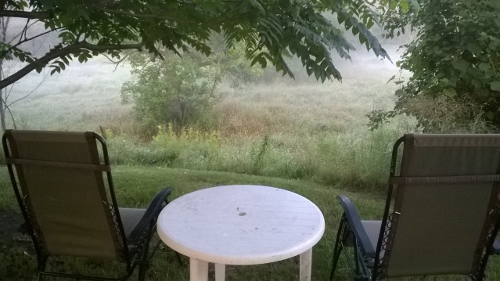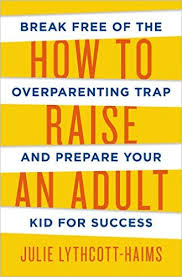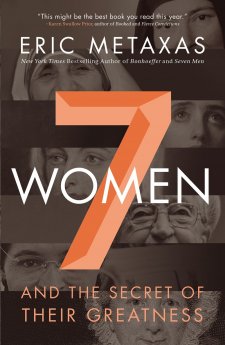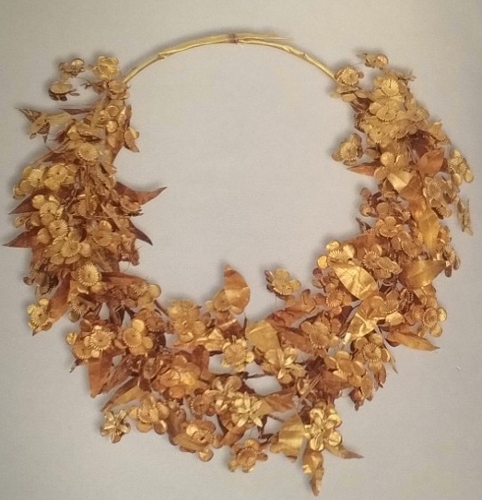We Christians all have something to say and to share, the glorious gospel and its many applications. It is good to consider how we do this, either to a handful of people or to millions, so that we do not destroy our message by our clumsiness or foolishness, or by projecting one thing and saying another.
Over the last 10 days or so, I spent some time listening to speakers whose goal was to teach and equip us to spread our message, and I want to share some of their ideas. Now, these are big name people, some of them among the greatest influencers of our society. Many have written New York Times best sellers, most of them reach millions with their ideas, and all of them derive their popularity, and often their income, from helping others. In this free summit, organized by Michael Hyatt, they shared some of their most inspiring thoughts.
So, if you have a message you want to get out there, whether to your children or to millions all over the world, read on to see what successful influencers have done and encourage you to do.
Michael Hyatt, author, speaker, organizer of this summit, and interviewer of all the speakers.
Years ago Michael Hyatt began to write a blog in order to clarify his own thinking and help a few people along the way; he wanted to develop discipline and developed an audience as well. He learned that
- Most of us do not see our own ability or message, but we have been given an obligation to use our talents for other people.
- The world needs what we have to share.
- If you are afraid remember, “Fear is how the body prepares itself for peak performance, so just go ahead.”
Lysa Terkeurst of Proverbs 31 Ministries and First5.
Lysa’s goal is to connect people’s daily lives to biblical truth by giving them encouragement every day. She emphasizes that the Bible is the best leadership and influencer book, and that the greatest leaders are those whose goal is to help other people.
As far as increasing one’s following, a very effective way to be heard is to enter into conversations that people are already having, rather than trying to get them to start new conversations. Another aspect of this is to consider how your potential audience is set up to receive your message. Do they need to see you as an expert, someone who’s been there, or a friend who’s in the same boat they are?
Dave Ramsey, author and money-management expert.
Dave wants to bring people hope using biblical concepts, because they solve people’s problems. He points out that everyone is scared to try something new. You will make mistakes, but go ahead anyway and make some non-fatal mistakes. There are so many opportunities today that you have no excuse not to spread the message you are called to spread. Just do it, remembering that most of the barriers are in your own mind.
Andy Andrews, author and one of the most influential people in America.
From living under a pier to being hailed as the best public speaker, Andy’s journey has taught him much that he’s willing to share. I’ll just list some of his nuggets of wisdom, things we know but so often forget:
- “You can’t believe everything you think.”
- Get your mind off yourself, what you think about yourself, and your value of yourself, and get your mind on helping and serving others and creating value for them.
- We need to ask ‘why’ about the results we get. This is obvious if something does not work, but we forget to do it if something works partially.
- On public speaking: Practice. Make friends with your audience and have a conversation with them. Smile while you talk, smile and nod, have your audience close to you, and never set up too many chairs in advance.
- Our world has become obsessed with how people feel, and that’s dangerous. No one cares how you feel; they care how you act. You can control how you act, you can smile, you can look people in the eye, you can have good manners.
- Discipline is doing something you don’t necessarily want to do to get a result you would like to have.
- People who want to influence others need to influence themselves first.
John Maxwell, prolific author and a foremost leadership expert in the world.
- On trying something new: Nobody’s good enough the first time; the first time your goal is to survive.
- There’s a great return in consistency; it will give you a compounding that no other trait will. (Aside: this is true in homeschooling as well.)
- Love where you are in life and make every day your masterpiece.
- Don’t ask yourself, “What will people think?” First of all, they won’t think much because they don’t think much about you anyway. You would be so disappointed if you knew how little people think of you.
- What you have to share is more important than the perfection of how you are sharing it
- Good intentions are not the same as intentional living.
Jon Gordon, author and speaker.
After a conversation with his wife, Jon decided he needed to become a more positive person, and this is now what he teaches others.
- It can’t be just about you. You need a bigger purpose, and you can’t know your purpose without a relationship with the one who created you for a purpose. Ask God to use you for his purpose.
- Be faithful with a few, and God may give you the opportunity to work with many.
- Focus on your root more than on the fruit.
- Serving begins at home in your family.
- Prepare the messenger before you prepare the message.
- Serve as Jesus did.
- Everything happens for a reason and painful times can be life-changing.
Gail Hyatt, the wife of Michael Hyatt, mother and former homeschooler of their 5 daughters.
Gail spoke about a different sort of influence, that of supporting an influencer. This interview between Michael and his wife was very personal, telling of their past, their 37 year marriage, their family, and how Gail supports them.
- You can diffuse fear in others by helping them regain perspective, encouraging basic self-care, and affirming them.
- You are going to get more of what you focus on in all your relationships.
- The best thing we can do for our children is to love our spouse.
- If we are married to an influencer of any sort, we need to be grateful for what they do, notice it, and let them know we appreciate it.
Donald Miller, author and business consultant.
I do not like Donald Miller, but his advice for those with a message to share was practical and fundamental. In his consulting, he explains to people, “This is what you think you’re saying, but this is how you are perceived.” In a sense, this is what I got out of his book Blue Like Jazz (link to my negative review): Christianity thinks it’s presenting a certain message, but the world’s perception of it is something completely different.
Don points out that, “Story is the most powerful tool to compel a human brain.” We humans need story like we need food and water, and we always self-identify as the lead protagonist in a story. However, our real life stories are confusing and we are drawn to clarity.
If we want to engage someone we need to understand the story in which they are the hero and we need to show them clearly how we can help them win the day. It’s kind of like Home Depot’s motto, “You can do it. We can help.”
To engage people this way we need to
- clarify our message,
- know who we want to reach,
- know what they want, and
- know how to help them.
In other words, there is a lot more to getting a message out into the world than merely saying or writing it.
Bob Goff, author and humanitarian.
- “I used to be afraid of failing at something that really mattered to me, but now I’m afraid of succeeding at things that don’t matter.”
- Love people. Love everybody always. Just be available. Think of each other as a symphony, not a bunch of soloists.
- Who are you becoming and what is the next step to get there?
- When we start seeing people as what they are becoming, they start seeing themselves that way too.
Fawn Weaver of the Happy Wives Club.
Fawn is truly an outlier in this list of speakers. She did not set out to gain a following or to make money but just wanted to counter Hollywood’s pessimistic view of marriage by setting up a club for happily married wives with great husbands. Yet, even before she knew that what she was doing was called a ‘blogging’, her Happy Wives Club had an enormous membership.
Her message was probably the most foundational of all: If you believe that your message is important enough to put out there, whether or not people follow you, then you know it’s time to do it and to get it out there.
Rory Vaden, speaker, author, and consultant.
- It’s hard to be nervous when your heart’s on service.
- You’ll pay a price either way; either pay it now by doing the work or pay it later with interest. Procrastination and indulgence are creditors who charge interest.
- On the other hand, “Sometimes it’s a good idea to procrastinate on purpose, to invest the time in yourself.”
- If you have a clear vision, discipline engages automatically. Discipline becomes dormant in the absence of a dream.
—
So, those were some of the highlights of the talks I listened to. I missed even more talks than I listened to, and that’s too bad because I have learned so much from this summit already. So I’m just going to share a list of the rest of the speakers with you. Note that this second list is more focused on making money, and that the websites refer to speakers’ businesses, not their inspiring words on how to spread a message.
- Crystal Paine, the only one on this second list whom I know well enough to recommend whole-heartedly.
- Jeremy Cowart, an influential photographer.
- Pat Flynn, entrepreneur, author, blogger.
- Carrie Green, founder of the Female Entrepreneur Association.
- Lewis Howes, business coach, speaker, and author.
- Amy Porterfield, social media strategist and author.
- Chris Brogan, author and business advisor.
- Dr. Josh Axe, wellness physician and radio show host.
- Glennon Doyle Melton, parenting expert, speaker and author.
- John Acuff, author, speaker, and blogger.
- Jen Hatmaker, mom of 5, author, and star.
- Jeff Goins, author and speaker.
And finally, if you want to learn a bit more about spreading a message that is dear to you, you can listen to the free and practical 3-part video series by Michael Hyatt, organizer and interviewer of the talks listed above, or read his book Platform.
Note: While I am giving links for all of these people because they each share a message that might interest some of you, I cannot vouch for everything they say or write. Many of them present nuggets of wisdom and godliness even though some of their beliefs are shaky at best, and some of their books I cannot really recommend at all.
—
For more encouragement, visit Raising Homemakers, Titus 2 Tuesday, R&R Wednesdays.
Disclosure: I attended the Influence and Impact Summit for free, just like everyone else did.




